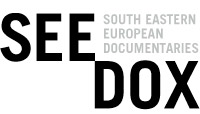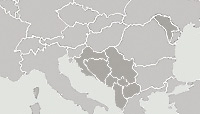Documentary Situation In Croatia
Before describing the situation in my country, I have to say that it will be difficult for me to be totally objective. As a major documentary producer, festival director and a teacher, I will surely put some of my own experiences and views into this text. However, I hope that it will be still informative enough.
Present documentary situation in my country is surely to a large extend influenced by it's past. As in other "communist" countries, the production environment was rather simple - films were completely financed by the state, but there were certain themes and subjects that were "out of limits". Although situation in former Yugoslavia was "softer" than in most of the other East European countries, an efficient censorship ("screening permit" system) ensured that no "controversial" subjects were dealt with, and even if they were, that they were not released into the public. The same was true with national television.
Saying that, I have to mention that the "golden age" of classical Croatian documentaries were 60-ties and 70-ties when some extraordinary films were produced by authors like Krsto Papić, Zoran Tadić, Krešo Golik, Petar Krelja and others were produced. As in many similar situations in other countries, these authors found their way to say what they really wanted to, in indirect yet efficient and creative ways.
90-ties brought major changes. In addition to the political and economic transition, Croatia was involved in a terrible war that changed everything. Consequently, in that period state didn't really finance the documentary production and national television produced only films that promoted values important for that period.
However, in mid 90-ties first independent productions were born. The most productive one - Factum, started with the help of Soros foundation and money from other international donors. Some very good films were produced and very important issues tackled as the result of it's existence. Factum also gave the boost to the creation of other independent producers.
In year 2000, after the next elections, situation changed and Ministry of culture started to finance documentary production on a regular basis. This usually encompassed 8 -12 short and medium length documentaries a year. The money given was usually in the range of € 15.000 - 50.000 which is supposed just to co-finance the film.
Such volume of production has been maintained till today.
On the other hand, "Film Law" has been discussed for years and still isn't in power. In addition, although also discussed, Croatia doesn't have Film Institute or Film Fund and is not a member of Media program.
As a result, the only regular financing of documentary projects is one by the Ministry of Culture, which means direct transfer of state funds (and, of course, influence) into production.
The main problem in documentary production in Croatia is HTV - Croatian television, the only public broadcaster in the country. With 20+ people fully employed in the documentary department, with avoidance of any "controversial" issues, with no regular way or system of commissioning the projects from independent producers and with the understanding that Eurovision system is still the main way of co-production, HTV is de facto the main obstacle in the development of modern, creative, interesting, vibrant and challenging programs.
Spending some € 1.500.000 a year (including salaries, etc) HTV's own documentary production is quite big, superficial and dreary. What is, however, important is the fact that independent documentaries on HTV's screen are rather exception than a rule.
However, some very interesting documentaries have been produced by indepedent producers in the last 10-15 years . Understandably, they mostly deal with the issue of the recent war and it's consequences on the life of people in Croatia.
Several tendencies can be identified in this line of production - dealing with Croatian war crimes (Croatia is the only country that does this on the regular basis), like in "Operation Storm" by Božo Knežević, personalization of war stories, like in "The Boy who rushed" by Biljana Čakić and the positioning of a new generation dealing with war issues, like in "I Have Nothing Nice to Say to You" by Goran Dević.
On the other hand, war and the related problems have, to the certain extend, stopped natural linkage between the Croatian and European production and also their cross-fertilization.
This is why, only now, the issue of personal stories is becoming interesting and replacing the "objective" story telling techniques, like in the recent "Half sister" by Ljiljana Šišmanović.
Also, there is a completelly new generation of young filmmakers who are moving away from the war issues, searching for their own voices.
All in all, a lot of work has to be done, specially in the regulatory work (which will be speeded up by approaching to the EU) and, hopefully, with the development of HTV into a modern, public television.
Nenad Puhovski



















